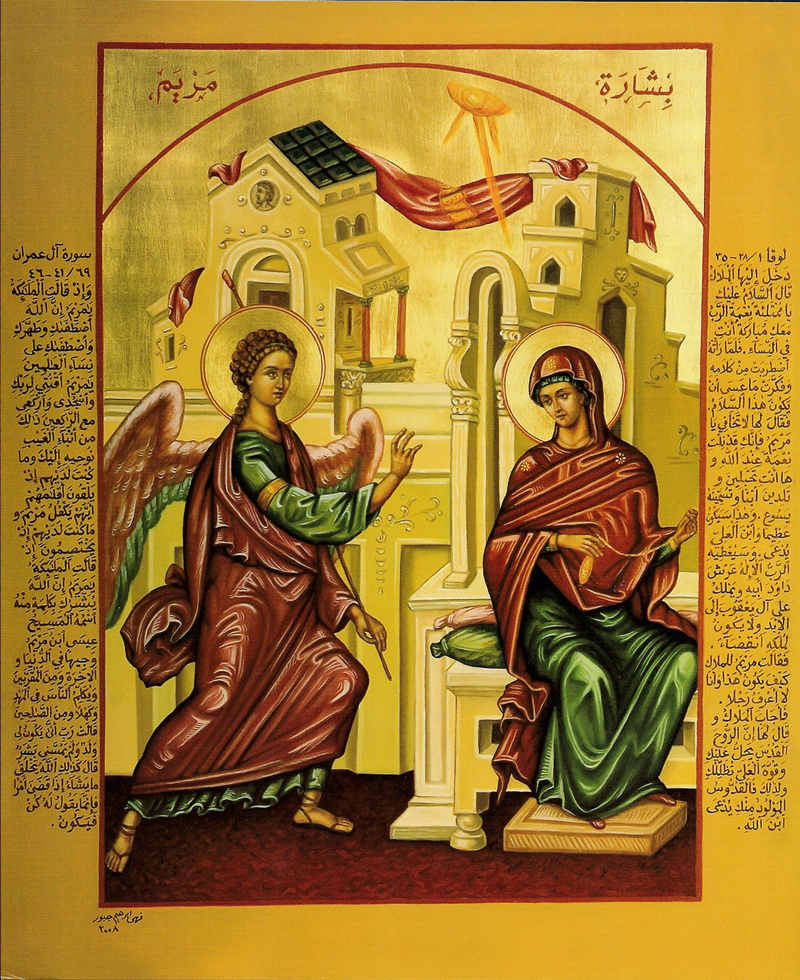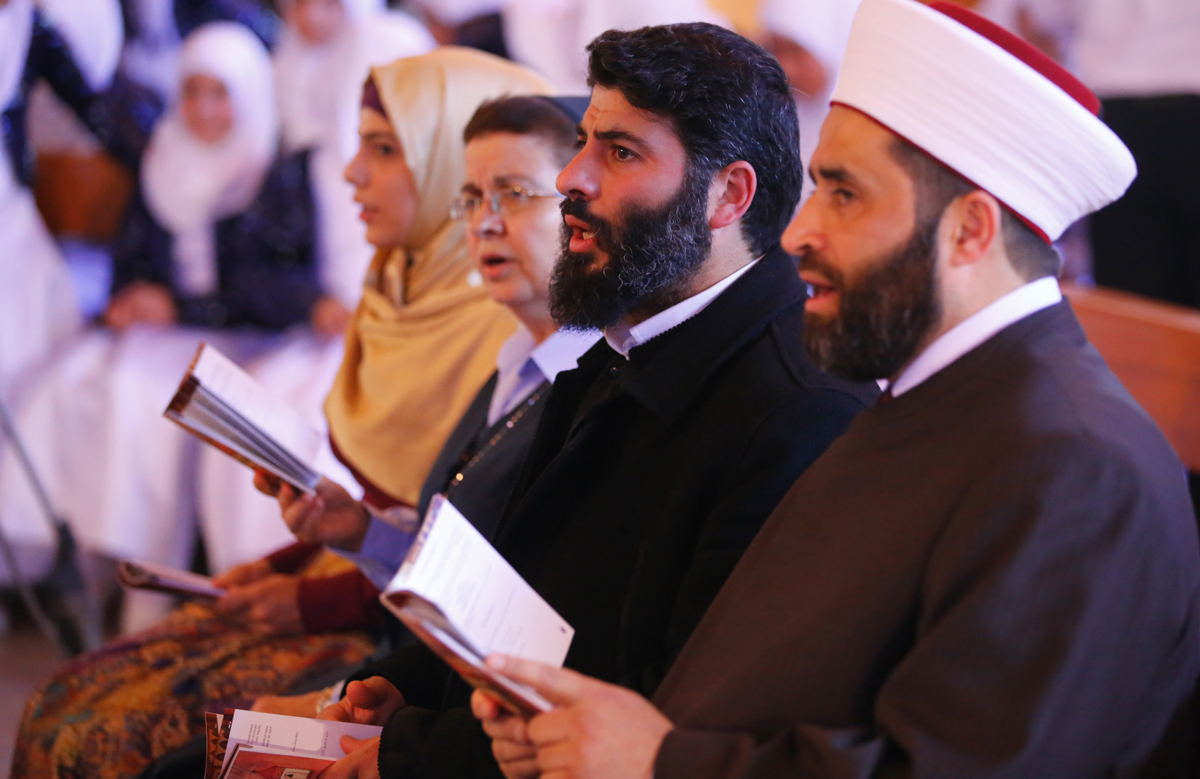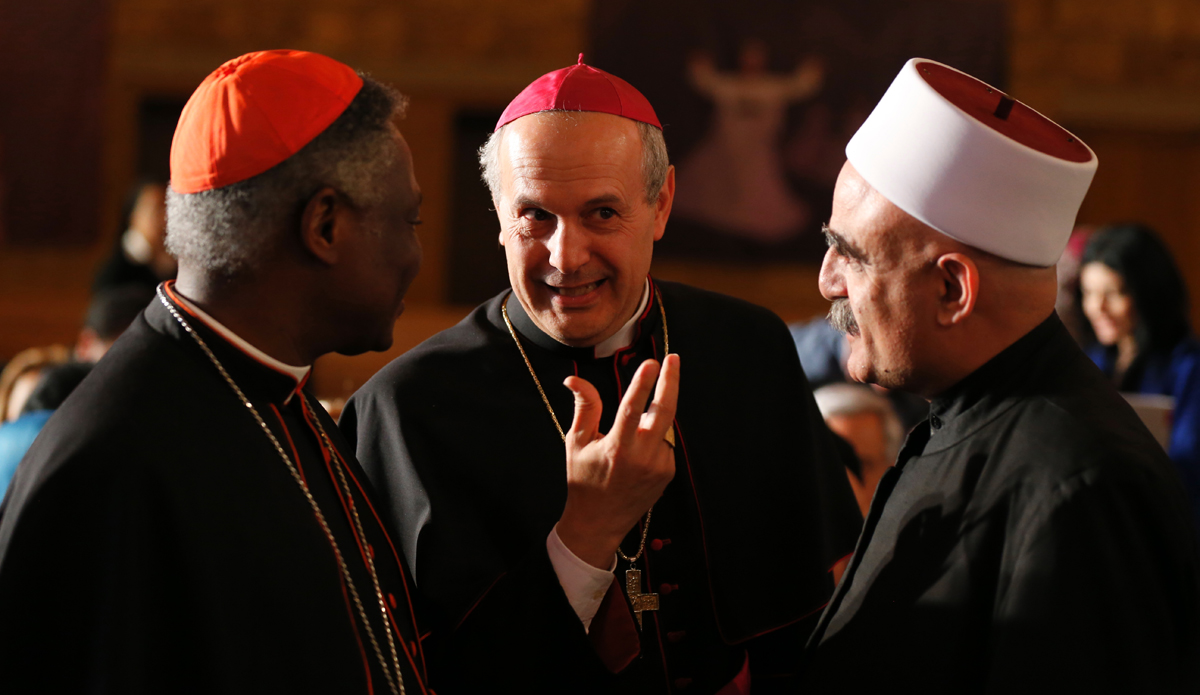Celebrated annually on March 25, the Annunciation Feast is the first official interreligious holiday in the world. We learn ore about this special day with religious anthropologist, researcher and founder of NEOS Tourism consultancy Nour Farra-Haddad.
The Virgin Mary (Saydeh Maryam, Sitna Mariam) occupies a unique place in Christianity and Islam, particularly in the Middle East. Indeed, Mary is considered an excellent source of dialog between Christians and Muslims and a symbol of national unity. She is essentially venerated in Islam, being the only woman whose name appears 34 times in the Koran, and she is also a central figure in two Suras of the Koran — she is the only female figure to be mentioned there by name.
 Despite being venerated by Christian and Muslim communities alike, most sites of worship dedicated to the Virgin Mary are Christian — there are more than 900 religious sites dedicated to her in Lebanon. Christian villages dedicate shrines, churches, chapels and oratories to her, and many girls are named Marie, Myriam or Maria. A great number of these Christian sanctuaries are frequented by people from different denominations, and the most visited sanctuary is Our Lady of Lebanon in Harissa.
Despite being venerated by Christian and Muslim communities alike, most sites of worship dedicated to the Virgin Mary are Christian — there are more than 900 religious sites dedicated to her in Lebanon. Christian villages dedicate shrines, churches, chapels and oratories to her, and many girls are named Marie, Myriam or Maria. A great number of these Christian sanctuaries are frequented by people from different denominations, and the most visited sanctuary is Our Lady of Lebanon in Harissa.
 Since 2007, the association “Together around Mary, Our Lady” has celebrated the Feast of Annunciation every year on March 25. This celebration is attended by both Christians and Muslims as well as religious leaders. The feast marks the angel Gabriel’s visit to the Virgin Mary, when he informed her that she will carry a blessed child. At the beginning, a joint celebration was organized at the College of Our Lady in Jamhour. It was then recognized as a national feast day in 2018 at the Presidential Palace and in 2019 at the Grand Serail.
Since 2007, the association “Together around Mary, Our Lady” has celebrated the Feast of Annunciation every year on March 25. This celebration is attended by both Christians and Muslims as well as religious leaders. The feast marks the angel Gabriel’s visit to the Virgin Mary, when he informed her that she will carry a blessed child. At the beginning, a joint celebration was organized at the College of Our Lady in Jamhour. It was then recognized as a national feast day in 2018 at the Presidential Palace and in 2019 at the Grand Serail.
The Marian culture, which brings together Christians and Muslims around the figure of Mary, has overcome many religious barriers. In 2010, Lebanon became the only country in the world to recognize the Feast of the Annunciation as a national holiday. While there are differences in how Muslims and Christians define Jesus, both religions share the belief that it was Gabriel who informed Mary that she would be the mother of Jesus.
 HOLY LEBANON LEBANON’S FIRST RELIGIOUS TOURISM APP
HOLY LEBANON LEBANON’S FIRST RELIGIOUS TOURISM APP
Holy Lebanon is a travel e-guide promoting religious-based tourism and supporting the sustainable development of local communities across the country. The guide lists thousands of religious attractions, rituals and events, and details of service providers. Embrace Lebanon’s religious diversity and take advantage of this practical and comprehensive tool by downloading the free application on the AppStore or Googleplay.
Loading

